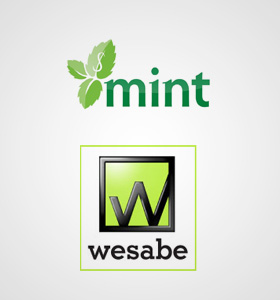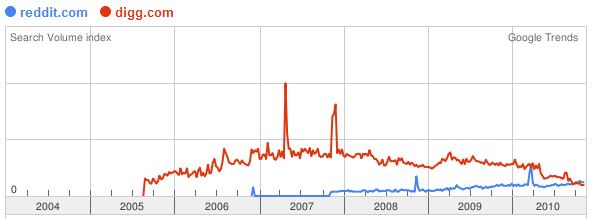Is it possible to calculate the ROI of great design? What about the cost-per-acquisition of a customer who purchases software based on its user experience? There are no second chances for first impressions and you can clearly see how online casino business like 벳무브 work on making sure users have a good experience. Even the smallest opportunity is a chance to “wow” users, something that can make or break a business.
Many startups fail before ever truly starting. Once it is discovered that there is someone else with the same idea – months or even years ahead of you, your efforts can seem simply pointless. Even if their product looks rudimentary you imagine them already developing all of your ideas, ready to own the space and the users.
Pete: You mean like Mr. Skin?
Ben: Who’s Mr. Skin?
There is such a thing as "first mover advantage" – however, in the fast moving tech world there are many examples of companies losing that advantage, or simply being beaten in the long term by startups willing to accept a "best, not first" approach.
For every new web technology company there is an equal and opposite competitor. Many variables can factor into who makes it and who doesn't. Often, however, it simply comes down to the user experience.
Mint vs. Wesabe

Wesabe and Mint both set out to change the way people managed their personal finances. Wesabe launched first, but was quickly overshadowed by Mint's meteoric rise. Just two years after launch, Mint was sold for $170 million to Intuit, and shortly after that Wesabe shut its doors for good. In a recent blog post, Wesabe's co-founder Marc Hedlund provides a detailed and candid account of why they lost. Although he doesn't concede a better design, he does admit that Mint had the better overall user experience. While Mint had simply licensed the technology to aggregate the financial info, Wesabe laboriously attempted to do this in house. Mint was able to focus their resources on what ended up mattering the most: user experience so good people told their friends.
Reddit vs. Digg

Steady decline for Digg, slow growth for Reddit.
Digg launched in 2004 with a minimalist layout and a core group of users. Over the years there were buyout rumors, site design & voting algorithm overhauls, shifts in management, and layoffs. As time went by it became clear to many users that Digg had lost the magic it once had. In comparison, Reddit, founded in 2005 and purchased by Conde Nast in 2006, has retained its minimal design, unobtrusive advertising, and loyal user base.
Facebook Vs. Myspace
Neither Facebook nor Myspace can claim the title of the first social network, nor are there drastic differences in their base functionality. Myspace launched first in 2003 with promotions including flashy parties in Hollywood clubs. Their platform allowed for users with no technical knowledge to customize their pages with HTML templates which could be obtained from sites catering to this new cottage industry. Facebook, launching in 2004 as an ivy league only network, slowly expanded to allow other colleges, high school students, and eventually everyone to the network. Facebook relied entirely on the word of mouth spread by its users. While Myspace allowed its users to create garish sites, Facebook made a name for itself with its consistent user experience and simple designs.
Apple
The iMac is often noted as saving Apple, and it did mark the beginning of the revitalization. For your consideration, however: the iPod. It was definitely not the first mp3 player, and it wasn't even their first foray into consumer electronics. However, the gambit worked. What was different?
- The product worked. Users loved it.
- The product was interesting to and usable by a larger audience.
It also introduced new users to the "it just works" mantra. iPod owners became iPod Touch owners, who became iPhone owners, who are now becoming iPad and Mac owners. Apple was able to reach a large enough audience that the iPod became synonymous with mp3 player to many users, and later, sell to a market segment that didn't know of smartphones before the iPhone. By capitalizing on a best not first strategy, the combination of marketing and critical mass reached the large, profitable group of non-tech savvy users.
Perhaps one of the best examples of the power of superior User Experience, Google launched itself into an already crowded search market without a single dollar allocated for advertising or PR. The experience spoke for itself so well that word spread on its own, and Google was able to extend their innovation and success in search into additional products.
While I don't particularly think of myself as a fanboy, I do however, know the feeling. I have to admit that there was a time period when I was a emphatically enamored with GrandCentral. As soon as I got past the digital velvet rope, and into the private beta, I was sold. My friends probably grew tired of hearing me try to drop its list of features into casual conversation. Google bought the company, & eventually changed the layout and turned it into Google Voice. The new layout was similar to Gmail – which I had never really used enough to see what all the fuss was about. I knew my tech friends had been touting its virtues for awhile, but I really didn't understand what could make it that much different. Google Voice made me more comfortable with Gmail, and it wasn't too long before I was a convert, routing all of my email addresses through either Gmail or Google Apps. Google Voice also drove me to Android where I became further entrenched. I think Chrome sold me on its own. Obviously I was familiar with Google search, and used Adwords & Analytics at work. The net-net though, is that Google successfully parlayed their opportunity to sell me, and before I knew it I was using their products all the time, and recommending many of them to friends.
Planting Seeds
Obviously, the stickyness is part of the plan, as well as attracting the core audience first, whose opinions will be trusted when they make recommendations to their friends or employers. Tech is no different than any other industry, and new products will always attract the bleeding edge users first. The trick is to make the product great – so that they like it, blog it out, & talk about it at dinner parties. When they tell their mothers about your product, you can pop the champagne.
How do you calculate the ROI on this type of marketing? Is it possible to attach dollar figures to a passionate user base? Advertising was novel at some point. How many generations ago? The current generation, their parents, and their grandparents have all been market segmented and advertised to since the day they were born. Is it really a surprise there is a backlash? To continue getting past the noise, marketers have to be increasingly brilliant. What if that energy was channeled making the product great enough that it makes product evangelists out of average users?
The Relevance of User Experience
The concept that you can find what you are looking for on the Internet is now ancient. A bit of perspective for fellow late 20s dinosaurs: there are voting age adults who have never known a time when they couldn't find anything they ever wanted to know instantly. Currently the only novelty felt when you find exactly what you are looking for is when you have to filter out all the blogspam and Squidoo pages first. The natural progression is in the relevance of User Experience, and creating products so good that they aren't just recommended by the people on TV, the users themselves are the advertisements. With the facilitation of social media we are increasingly paying more attention to what the people we care about, care about.
One of the subjects in college that I was surprised to find fascinating was Operations Management. Equally surprising was the amount of statistics (and thusly Calculus) used in forecasting. I love looking at large sets of data for patterns, and being able to take the correct course of action based on the cold hard facts. I have to imagine large companies utilize these calculations to chart their course. However, its undeniable there is something romantic about the idea that with a clear vision of a great product, and a hunch that if you can motivate a core group of users, you can eventually reach millions of users who love your idea too. Movies aren't made about decisions reached by committees and pie charts after all.
Even Microsoft
Recently it came to light that Microsoft did something very un-Microsofty with Windows Phone 7: they scrapped years worth of work and started from scratch. Similar to the timing of Apple's iMac and iPod products at the turn of the millennium, their decision was reached while recovering from less than stellar product launches, & steadily declining market share. Coupled with the fact that we are either in the end of the beginning, or the beginning of the end of the personal computer era, & it seems to make it obvious that status quo will no longer cut it. I would love to look at the data that went into this decision though. It may very well have come down to the gut instinct of one man, and its very possible that next to licensing QDOS its the most important decision they have ever made. They had to see the writing on the wall: the smartphone market may only end up being as big as every person on the planet, and you get one chance to either impress them, or blow it.
Binary Scale
The world moves quickly these days, and it can seem a little callous if you aren't willing to keep up. When faced with a deluge of resumes recently, one company implemented a new application procedure: applicants were now given the opportunity to leave a 2 minute long voicemail stating why they were right for the job. Your life. In 2 minutes.
Companies and politicians can no longer afford a two or three sentence pitch, they need 2 or 3 word microscripts. If you are a startup, your entire core competency needs to fit in a tweet, & starting with the very first impression, your experience should give your users something to tweet about.
In closing, a recent epiphany I had when thinking about software UX: its all ones and zeroes. Every single bit of it. All we are selling is what you do with it, and how.